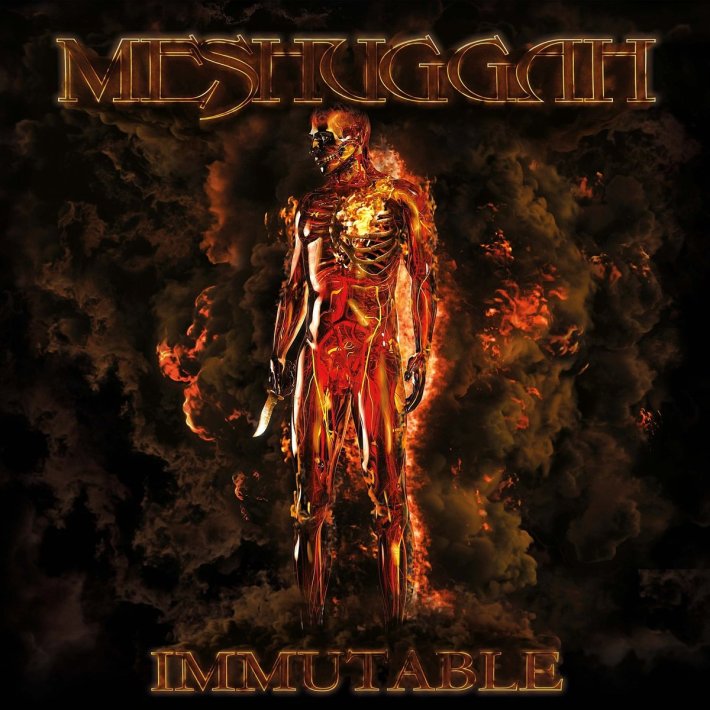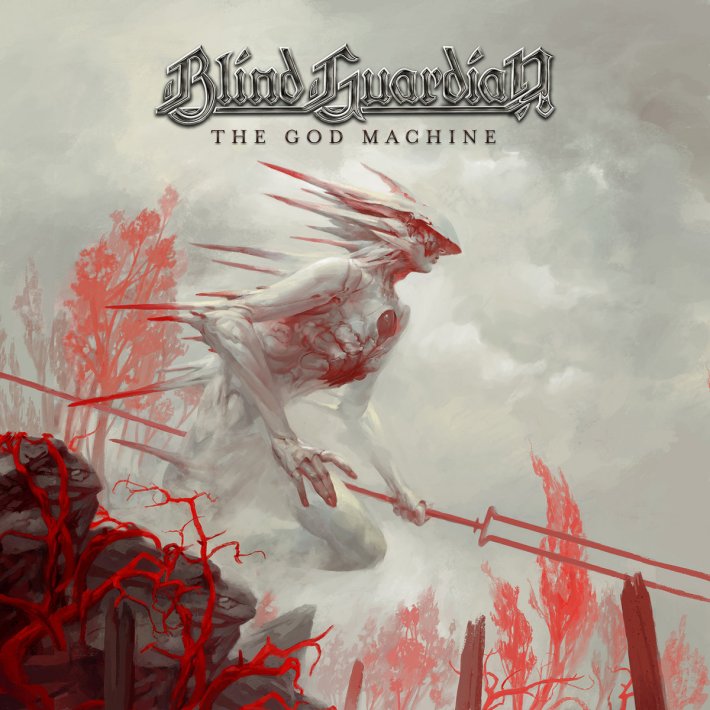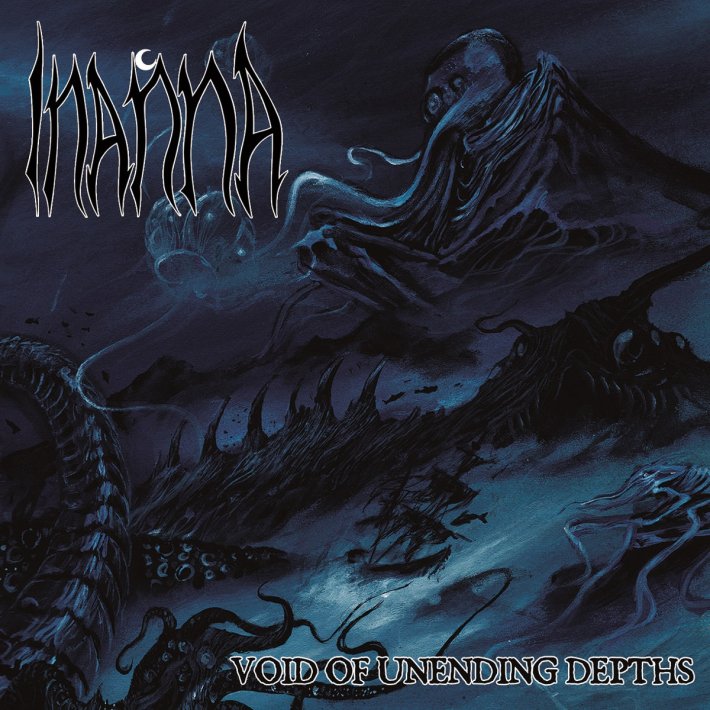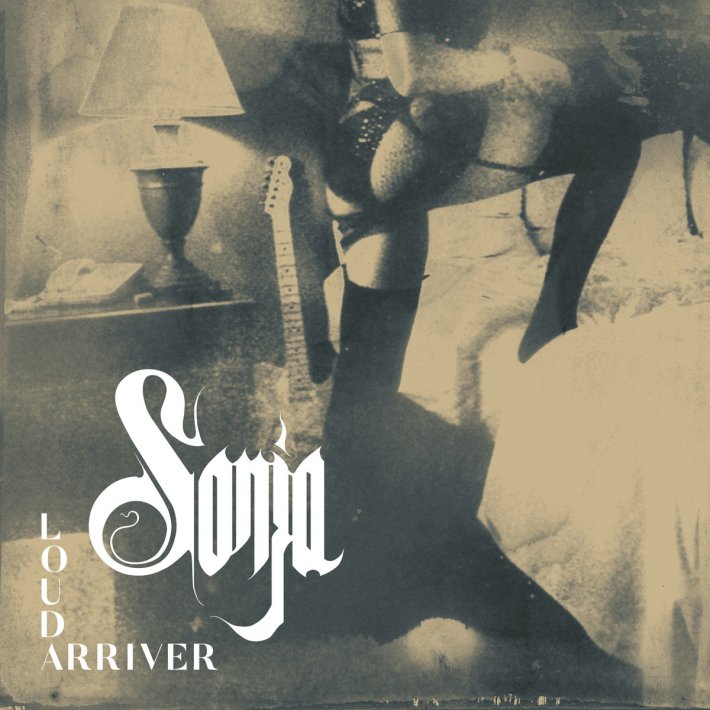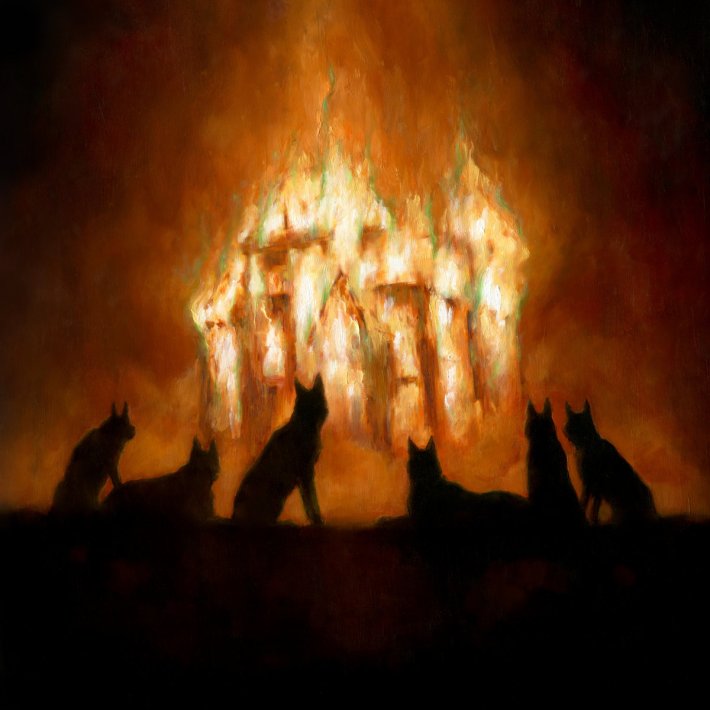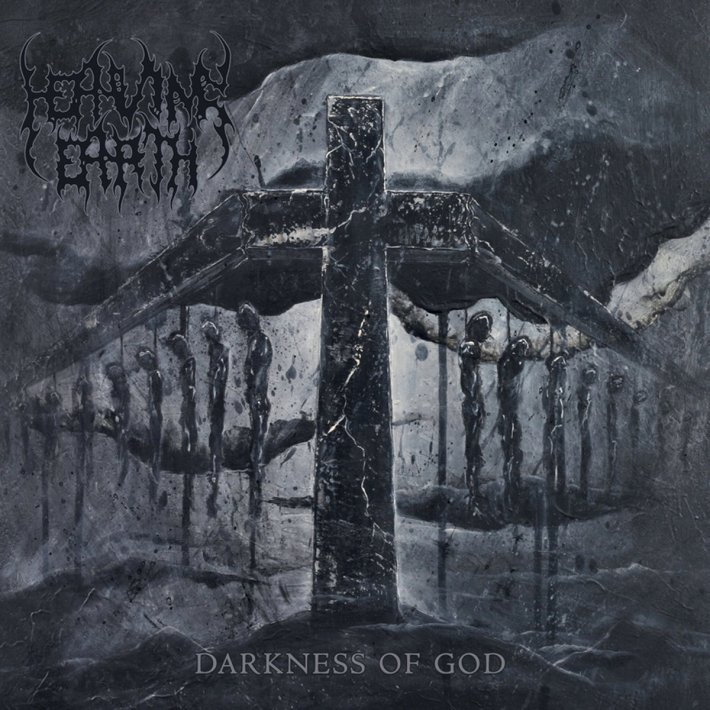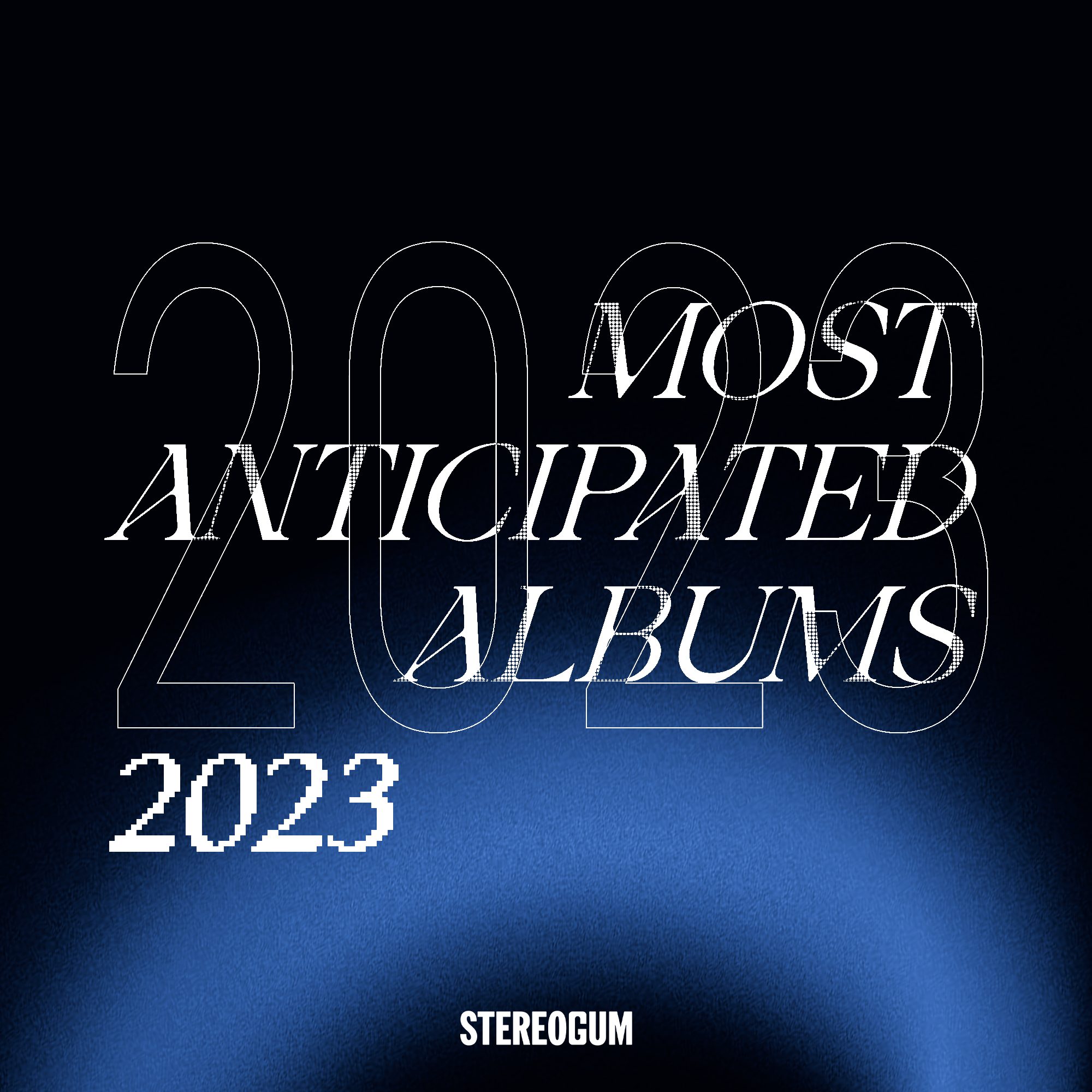Welcome to the Black Market's 2022 favorite metal albums extravaganza. As always, we're sponsored by sleep deprivation, depression, and an insatiable need to hear heavy metal to make it all go away. We have 10 of the finest slabs of steel released this year on the docket for you today. But first, an intro that neatly sums up the state of metal and the years ahead.
Uh. 2022! By every possible definition, that was a year. You bet it was.
Look, anything I could write will age horribly. The lone truism I hold onto is that whatever you want to say about metal is immediately contradicted by whatever metal you're not considering at that exact moment. Such is the pain of plotting the infinite expanse of one of music's more paradoxical genres.
What's that? Oh, yeah, I'm also extremely not good at prognostication. In between 2021's last gasps, I wrote this:
I need you to remember this one and bring it up in December 2022 because I am going to write something incredibly rash. In the same way I've doomed Relic Point and Plain Cheese Pizza to obscurity, I am going to make a career-crushing pronouncement about this Chilean quartet. If this doesn't come true, I need you to throw this back in my face and save me from myself because I will kill again. OK. Deep breath. Here we go.
Mental Devastation are going to be big.
Mental Devastation has 304 monthly listeners on Spotify. Do they deserve more? Absolutely. The Delusional Mystery Of The Self (Part 1) is still a banger. But the band is stuck in the Black Market Zone. I wish it the best. It is good. But, much to my chagrin and face, it is not big. (Because this will come up, Relic Point has 21 monthly listeners on Spotify. Plain Cheese Pizza has four. Clearly, if you want to make music a career, it is in your best interest not to make music I like.)
How do I keep deep-sixing bands like this? It's incredible. It's not even a bit at this point. Where are Mulder and Scully? If you sat me down and forced me to predict whether Lorna Shore or a UK garage-influenced goregrind band named Goreage would be the bigger deal next year, I'd be like, "...tell me, who is in Goreage?" How have I managed to live this long? If I were a Neanderthal, half of me would be sloshing around inside a saber-toothed tiger by now.
So, here's the deal. I am so bad at all of this. We can either play The Game of Metal again or...hold on. I have an idea. To rectify my divination dysfunction, I've crafted a one-intro-fits-all template you can fill in anytime. Please answer the 14 prompts below and plug your responses into the corresponding blank spots in the text. Some might call this a Madlibs, or even a Metal-libs, although I think a "metal-lib" is what keeps Bardo up at night. Whatever! It's time for your forever-current year-end wrap-up!
1. What year is it?
2. Name an album you think is underappreciated.
3. What's your favorite album this year?
4. If you accidentally backed over a panda in a steamroller, what sound would it make?
5. Use the Random Word Generator. Generate one word.
6. What band did we cover that you liked the least this year?
7. What's the most inconsequential metal story of the year?
8. What's the one band you can't stand that your friends won't shut up about?
9. What's an album everyone loves that you don't get?
10. Which Big Four band released the newest album?
11. Click the Random Band button on Encyclopaedia Metallum. Which band appeared? (If you get a sketchy band, click again. We're not doing that.)
12. What is the first song on that band's first release?
13. What year is it next year?
14. Email me your date of birth and social security number.
Wow, it's the end of [1. year]. Where did the time go? It feels just like yesterday that [2. underappreciated album] was released. Do people even remember that one? I'm not trying to curry favor, but it is a great record and you are very smart. Anyway, we've made a list of some similar albums released in [1. year] we're sure we'll never forget once next year's promos start coming out. And I already know what you're thinking: is [3. favorite album] here? No. I was too busy listening to technical [4. panda noise], [5. Random Word Generator]core, and traditional [6. least favorite Black Market band]-inspired metal to get to that one. But, hey, what has made our list is a fine summation of the year. And what a year it has been. Back in January, it seemed like we'd be talking about [7. inconsequential story] forever. But then, like clockwork, [8. friend's favorite] did that extremely cancellable thing, and everything changed. Totally makes sense in hindsight, though. I never liked them. And remember the discourse around [9. friend's loved album]? That was a wild few months. I'm glad we all agree, in the cold light of morning, that it's awful. But now it's cold, old December, and there's another boring [10. Big Four band] album, and everything seems back in order in the metal world. So, with absolutely nothing of consequence to say, I'd like to send you off with something inspirational and/or infuriating. In the words of [11. random band], "[12. first song]." And that says it all, really. Goodbye, [1. year]. Hello, [13. next year]. Stay safe, take care of yourselves, and fascist, racist, misogynist, homophobic, transphobic metalheads can fuck off.
There you go. That last sentence should hold up, at least. Next order of business: Since this is the year's final column, let's follow up on some column topics I've been tracking.
Were more metal full-lengths released in 2022 than ever before?
At the time I'm writing this, the record is 2020's 9,248 full-lengths. There have been 7,994 full-lengths released or slated to be released in 2022. That's slightly off 2020's 11-month pace of 8,409. Either way, and everyone please chant this like we're on a game show, "Metal, there is a lot of it."
Real quick, live albums are also down from 2020's peak of 597, but 2022's 424 seem likely to eclipse last year's mark of 445.
Who holds the Trad Belt?
Q1: Tower - Shock to the System (2021)
Q2: Satan - Earth Infernal
Q3: Sumerlands - Dreamkiller
Q4: Riot City - Electric Elite
Were more new black metal bands formed this year than death metal bands?
Way more: 305 to 167. Also, someone is keeping tabs on "metal subgenre percentage of yearly albums" now. You can follow MetalStats for more.
Also also, I wouldn't make anything of this since Metallum's numbers are constantly in flux, but new band formations, on the whole, are down again for the 10th straight year.
Alright, enough gum-flapping. The listpocalypse is upon us. The following best-of was created using my proprietary ranking formula. This process is so steeped in common sense I can't believe I'm even explaining it again, but here's the methodology: I asked every Black Market maker, past and present, to rank their favorite 20 albums. Next, based on frequency and order, we winnowed that long list down to a shortlist. I then booted up Civilization II and named each civilization after the shortlisted artists. Eight thousand simulations ensued. I tabulated which artists made it to Alpha Centauri the most times. That left us with 10 albums. However, the final order was decided by my spiritual advisor, an 11-year-old golden retriever named Kevin, who honestly can't stand me. But his barks are wise, and he didn't try to bite me too often, so we have a great list! See! It's basically the same listmaking process as everyone else. Well, I guess Decibel asks a mastiff. Doris has good taste but also hates me. It is what it is.
Is it list time, then? No! A reminder: This is a Black Market list. It will surely confound, disgruntle, dissatisfy, and frustrate. So, as is tradition, I'm copy-pasting Aaron's annual disclaimer:
As the sacrificial goat chosen to kick this thing off, it is my job to deliver the bad news up front: This list will disappoint you. (Also, ranked year-end lists are dumb, dumber than our usual lists, which is saying something.) Apologies if this sounds familiar. I can't say this in clearer terms than I did last year, and I won't try, so let's go ahead and make your disappointment an annual tradition, like drinking spoiled eggnog and laying waste to a public restroom.
No apologies, however, for the contents of this list, which is objectively perfect to the extent it accurately reflects our collective favorites. Presumably, it looks nothing like your personal list, which makes sense because, last we checked and despite our best efforts, we are not you. For better or worse, just like last year, we made a collective choice to eschew grand narratives and editorial coherence and instead give you our unvarnished favorites — the things we loved most (or hated least). Life is short, cruel, and full of idiots (like us), so this is what you get. Happy December.
And jeez, are we ever going to test Aaron's we're-not-you clause this year. Strap in.
Now is it list time? NO! Two final notes before we get to the goods.
1. Scarcity's Aveilut and Nite's Voices Of The Kronian Moon would've placed highly if the bands in question didn't contain friends. If you haven't yet, give those a listen! They're great. It's not their fault that the players like us, but it definitely suggests extreme personality flaws and questionable judgement.
2. Please, drop your own top 20 in the comments below. It is one of my favorite things to read every year and it exposes me to so much music. I can't wait to take a look at your lists. And, as always, thanks for coming around and reading my slop.
Enough. Our favorites beckon. –Ian Chainey
I'm a Meshuggah mega mark, something I don't think I've copped to in the column beyond yelling at children that Contradictions Collapse is great. We're a strange, mercurial bunch. I've grumpily staked out territory in a specific era and battled other obsessives I mostly don't want to be associated with because, I mean, I'm not the crazy one. Sound familiar? Meshuggah fandom is sports fandom for people whose hearts beat in 23/16. In fact, whenever I catch myself conversing about the incredibly influential Swedes, I take on the tenor of an AM sports talk radio host. It's as if the thing I believe most with every fiber of being, that you can like whatever you want and no one should give you crap about it, is placed in a sleeper hold by my inner Mike Francesa. "Hey, I don't think I like Meshuggah," an imaginary sports talk caller from Buttzville, New Jersey, screeches. "Can you explain? Thanks, I'll hang up and listen." What, do you just hate riffs? I yell obnoxiously with the same rhetorical prowess as a small business tyrant forcing you to take a double shift on your vacation day. These riffs? You hate big grooves? You hate when the guitars go brang brang brang, and the drums go tsh tsh snap, and Jens Kidman is all like, and I quote, "AHHHHHHHHHHHHH"? How is that possible? Let's take a 20-minute ad break that's just carpet store jingles, and then me and Vinny The Badger will tackle this question. See? Not a great look, mainly because the chosen era I defend with the intensity of an Akita that stumbled upon a tub of sausages is everything up to and including Catch Thirtythree. However, I think that is notable in explaining why Immutable is here. It's Meshuggah's best top-to-bottom album in ages, retaining the tricky, where-the-heck-is-the-one songwriting of The Violent Sleep Of Reason while reaching back into my preferred period's bag of peerless riffsmithing. And, whew, everyone brings it. Kidman's yell could dissuade a hungry mountain lion from trying its luck. Drummer Tomas Haake deserves a science grant to fund physics-defying playthrough videos for every song. Bassist Dick Lövgren and guitarists Mårten Hagström and Fredrik Thordendal carve jaw-droppingly intricate all-timer riffs out of blocks of thrash and groove. Hell, closer "Past Tense" is the band's best synthesis of Holdsworth and Bailey. Great band. Great riffs. One word is all you need: "Ligature Marks." Wait, Vinny is telling me that's two words. What are you, a Scrabble-ologist, Vinny? OK, next caller. --Ian Chainey
Black Fellflower Stream was one of the strangest records to land in 2022, a sun-baked acid trip of a concept album that is self-described as “a portrait of obsession and torment set entirely in a single isolated field where a man in the throes of mania believes he is capable of digging a hole deep enough to reach oil.” The debut from the bizarrely named Sunrise Patriot Motion lives up to this bizarre premise, bending and traversing soundwaves that obey the physics of Salvador Dali, M.C. Escher, and Hieronymous Bosch. There’s a devilish regal flourish in the stylish playing, with chimes and harpsichord-esque guitars and moderate, deliberate pacing timing the procession of a jester-king. But swaths of post-punky, gothy synth and electro bounce could also have you thinking of Echo And The Bunnymen, even as a wild, desperate scream pierces the troubled air. A gloomy, dripping delirium hangs over this dark, surreal tableau, distorting and distending at every wonky turn. From Will and Sam Skarsgard of Yellow Eyes, Black Fellflower Stream is an outlandish and alluring treasure. --Wyatt Marshall
My bud Michael Wuensch listened to 316 power metal LPs this year while piecing together his annual "We Have The Power" round-up for Last Rites. Blind Guardian's The God Machine topped the list. Incidentally, I listened to 316 brutal death metal albums and The God Machine was my favorite power metal album, too. I'm sure these two experiences are equal. Anyway, what's left to say about The God Machine that Aaron didn't already cover in the 197 texts he fired off when the long-running German quartet-plus-more wasn't listed in the column this year? (In my defense, Blind Guardian, one of the biggest metal bands in the world, don't need our help.) These nine impossibly stuffed songs return the power metallers to their pre-Twilight Orchestra glory, achieving characteristic shredtastic bombast through elaborate layering and clever composing. Each ultra-metallic verse builds a nearly unbearable amount of tension before the even-more-metal choruses resolve them. And, goddamn, those choruses. Majestic. Sweeping. Grand. There are chords within them that have the same awe-inspiring intensity as a god exhaling. At the heart of it all is the ageless singer Hansi Kürsch delivering another performance that is the epitome of commanding charisma. Kürsch could sing the entire Cheesecake Factory menu and I'd still melt. So praise be to whatever benevolent being blessed him with that golden cry so he could sing passionately about ... The Witcher. Power metal, folks! Rules. The rest of the gang — André Olbrich (guitars), Marcus Siepen (guitars), Frederik Ehmke (drums), and session friends Barend Courbois (bass) and Thomas Geiger (keys) — play these songs so perfectly it's easier to imagine they were formed the same way as planets. You don't need to listen to 316 albums to fall in love with The God Machine. But if you do, at least you already know which one will be your favorite. --Ian Chainey
There's something nice about the way these titles line up next to one another, something natural about it: Sunbather. New Bermuda. Island. On the page, it looks almost like a triptych, doesn't it? A triumvirate, even. More to the point, through the headphones, it sounds like that, too. If Island were the third act of that particular play, it would flow very naturally from where its predecessors left off, and it would provide a thrilling, captivating, truly climactic conclusion to the whole work, irrespective of who authored which bits. Of course, even if the Japanese quartet Asunojokei noticed that fine little coincidence when finding a title for their own second LP, it would only have been after the fact, and it would only have served as additional confirmation that this collection could be called nothing other than Island. Not even confirmation, really, so much as a little joke left embedded in the DNA of a massive and singular work. Because, of course, the island in question here is neither a metaphor nor a clouded reference to another artist. The island is Japan itself, nothing smaller and nothing less. And while its ostensibly obvious influences may have come from California, Island is a distinctly Japanese album in every respect, really. Yes, Asunojokei sing in Japanese ... and yes, you can hear bits of Envy and Heaven In Her Arms in here ... and yes, that's part of what I'm talking about, I suppose. But that's not really what I mean. What I mean is ... I'm not sure how to illustrate this while effectively conveying the respect I intend – to say nothing of the authority I lack – so I'll give one example and hope it lands somewhere not too far from the mark. Not long ago, I was reading a book called The Face by the Zen priest Ruth Ozeki, in which Ozeki describes the process of making a traditional Japanese Noh mask. Now, it's quite literally impossible to encapsulate this process in a couple of stray sentences, paraphrased or otherwise, so I'll just pull a couple of Ozeki's stray sentences, altogether sans context, and drop them here to make my point – or otherwise, kill me in my attempts at doing so: "Painting the hair is particularly exacting. It demands a steady hand and intense focus and concentration, since the placement of each strand can change the character of the mask." That concentration and focus, that steady hand, that particularly exacting discipline ... that may not be unique or universal to Japanese arts and culture, but it is absolutely essential to Japanese arts and culture, now and through the centuries. And when I listen to Island, I can hear nothing less in the music. Asunojokei are devoting complete attention to every single strand of hair here, and if one seems out of place? That, too, is intentional. Even though for all the world, Island surely sounds like chaos unleashed at the speed of light, it's not that, and for all those who listen closely, it reveals itself to be something no less intense than that, but something vastly more artful, more deliberate, and more remarkable. And while Asunojokei may not have consciously intended for that gigantic title – Island – to stand so neatly next to the names of Deafheaven's two defining masterworks, that's not to say Asunojokei weren't very deliberately coming for their throne. It's too soon to say whether Asunojokei have unseated Deafheaven, of course – classics become classics by being classics, after all. It's not too soon, however, to tell Deafheaven to shove over, boys; share that seat. And just let me bow down. –Michael Nelson
Inanna's Void Of Unending Depths is impossible to play out. Some of that indefatigability is because the Chilean quartet's riff-rich death metal is so unhurried. Sure, it blasts and brutalizes and does all the things that extraordinary death metal needs to do. But it's also self-assured in its approach, as if Max Neira (bass, vox), Diego Ilabaca (guitars), Cristóbal González (guitars), and Carlos Fuentes (drums) know precisely where they need to be. What make Inanna unique in that regard is that it has round-trip tickets to a lot of places. Void Of Unending Depths is a diverse album. These four fill their passports with stamps. But the true vastness of their scope is subtle because all of the elements are in tune with the band's voice. Inanna don't take journeys to sightsee, to be a death metal tourist. It's a citizen of its destinations. For example, "Mind Surgery" doesn't flirt with '70s prog because Inanna thought it would be neat. No, it's because Inanna love prog, and thus it was natural for prog to spill into their music. But, as the band likes to point out, this approach isn't revolutionary. It's simply part of the totality of their death metal experience. "The beacon that guides Inanna mainly calls us to places where speed, aggression, brutality, fright, disbelief, and dread reign, the most crucial Death Metal music features since its inception," two members told No Clean Singing, "Our '70s progressive rock background was able to slip through the cracks of this monstrosity and soak it in mystery during the search for titanic structures, chord progressions full of mysticism in search of paths that land in something more melodic, if you will. Above all, as I said at the beginning, powerful speed and an eerie atmosphere is our greatest purpose." I usually roll my eyes at death metal capitalizers, but it feels earned in this case. Powerful speed, eerie atmosphere, indeed. Sure, Death Metal. And it doesn't get much more capitalized than the near-14-minute closer "Cabo de Hornos." It's everything that Inanna excel at, from the death metal to the spaciness to the proggy hooks to a whole bunch more. And, no matter where it goes, Inanna sound classic, like they have always been around, like they always will be around. It's the confidence that comes with knowing yourself. And no matter how often I listen to Void Of Unending Depths, that confidence draws me in. I never tire of it. –Ian Chainey
Loud Arriver apparated into 2022 from metal’s halcyon days, bringing razor-crisp riffs, a wild-eyed appetite for danger, and big hair into a 2020s soundbooth. Front to back, this thing rips — pedal down and pulse-quickening, it’s built to be played loud and often, and it’s the rare record where you could pick a track at random and run with it as a lead single. Overflowing with infectious hooks, Sonja’s mix of trad, goth, and glam metal brings out the best in each component; there’s the indefatigable and acerbic riff attack, a beguiling blend of smoke and leather and nocturnal thrills, and a theatrical and swaggering radical bearing that, ten times out of ten, opts to go big. Frontwoman Melissa Moore’s piercing wail is arresting, earnest and honest, landing with stylish syncopation that elevates the energy levels even further. Loud Arriver is, in a word, awesome, and if you’re looking for an album on this list that’s fit for cranking up with the windows down on a summer night, this is it. --Wyatt Marshall
Luces Lejanes arrived, on Bandcamp and in the world, on October 27, 2022, via one song, "Lobo Blanco," which was to be, or so it proclaimed, featured on an imminent full-length called Partida. I bought "Lobo Blanco" immediately, on that day, on the strength of the song – it is a flat-out fantastic piece of music – and when Partida hit Bandcamp on November 4, I bought the album, immediately, on that day, on the strength of "Lobo Blanco." I didn't listen to Partida immediately on that day, though. In fact, I didn't listen to it for another few weeks. Here's what happened: "Lobo Blanco" was, I believed, a little home-recorded miracle of a song, a single stroke of divine luck by an upstart anonymous artist. I believed Partida would be an earnest but inevitable letdown because after "Lobo Blanco," how could it not? Little bands like this ... they don't burst out the gate with portfolios full of masterpieces. Those things come with time, on the rare occasions they come at all. Then, however, I wrote about "Lobo Blanco" for the November edition of this column – and I raved about it, of course, because that's the point of this column – and when I read my ravings, post-publication, I realized that none of what I had written indicated any sort of "divine luck" or "inevitable letdown." I was talking about the song's composition, its component pieces, its sense of drama ... and I was talking about all of this in nearly breathless terms. I compared "Lobo Blanco" to Sadness' "I Want To Be With You" and Woods Of Desolation's As The Stars, two references I'd never otherwise employ unless the art in question were of an extremely high level and absolutely worthy of such superlative praise. Yet there it was, in front of me, in my own hand. Everything I'd written suggested Luces Lejanes was something very real, something much more fully realized than my own prior biases or narratives had allowed me to believe. I listened to Partida, then, at last – on my own goddamn recommendation, no less! – newly hopeful, if not necessarily confident. After one listen, I clearly understood I had just heard one of the year's best albums. After two listens, there was no question in my mind. It was hands down the single best album I'd heard in 2022. It's been about a hundred listens now – in a relatively short span, yes, but what is time? – and my conviction is only surpassed by my excitement. The songwriting is an A. The performances are an A+. The production is an A++. The ideas are off the scale; the execution is sublime; the final product feels like a new landmark – a new everything. So I've already compared Luces Lejanes to "I Want To Be With You" and As The Stars, and I'm deliberately, almost hypnotically, repeating those comparisons here. But here, to those names, I'll add another. I've probably referenced Alcest in a third or so of everything I've ever written, and it's hard to escape that, as Neige is the Almighty Father of this particular style of music, and Alcest casts a rather big shadow. For my money, though, Alcest's very finest moment to date is the song "Protection," off Alcest's most recent album, 2019's Spiritual Instinct. It's a swaying, crushing, exhilarating piece of music. It's simply flawless. And I have never, ever, even privately or internally, compared anything to "Protection." Until, obviously, now. "Protection," of course, will forever be flawless. But Partida is here with us today, and it is better, on the merits and in the music. The anonymous artist behind Luces Lejanas – code name Morthalion – is a better drummer than Neige, who is himself a drummer by nature and an incredible one at that. Luces Lejanes' vocal flips from clean to harsh are in an entirely different league than those of Neige – and prior to this point, I'd considered "Protection" to be the finest integration of those two sounds that I'd ever heard. No, this is simply a different thing altogether. This is better. (Luces Lejanes' vocal choices and vocal production should serve as a benchmark for atmospheric black metal for the next five years, if not forevermore.) The hooks? It's hard to write better hooks than Neige. Call it a tie. The gnarl? Luces. Not close. The guitars? I mean ... look, we can continue going down this list, but I already know the score. I need you to listen. I need you to hear this music no less than I needed myself to hear it, no matter how you hear it or where you heard about it. I feel like, if you're lucky enough to hear something like this, you just scream about it, at the top of your lungs, to anyone who will listen. Listen! You just have to. You just have to scream. You hear something like this, you just can't do anything else. You hear something like this, you just can't stop listening. You hear something like this, you just can't stop screaming. –Michael Nelson
Chrome Ghost capture life's duality. What sets them apart is that, instead of commenting on the two separately, they sharpen the double-edge of the human experience at the same time. "The heavy/light thing is incredibly important to what we're doing," singer and guitarist Jake Kilgore said to Doomed And Stoned in 2018, adding later, "We're trying to get much darker and much prettier all the time." The Roseville, California trio pushes in both directions on House Of Falling Ash. At times, the band boils within the intense fury of sludge chuggery. Joe Cooper's bass smolders, Jake Hurst's drums pound, and Kilgore's guitars and vocals roar. Then there are the quiet stretches. Soulful cleans and delicate crystalline riffs ache with a 2AM kind of loneliness. Similarly, producer Patrick Hills' pedal steel wraps you in the protective yet dangerous cloak of night. It's a contradiction, that darkness, that prettiness, all in one. But don't mistake House Of Falling Ash as an album of vibes. That wouldn't be as affecting. The songs are great. Standout "The Furnace" is like Acid Bath and Only Living Witness joined forces to resurrect Mare. (That might not mean much to you, but I guarantee someone out there just clicked the buy button on Bandcamp so hard that a Fortnite server toppled off its rack.) There's heavy, there's light, and there's its ending, which, again, is both. When that lead guitar starts to scream, that stretch of devastating catharsis, it's so damn pure. It's so real. It's like Chrome Ghost have the utmost empathy for everyone caught between the extremes, like they know that feeling, too. Sometimes you think you're one of the animals on House Of Falling Ash's cover, sitting by the warmth of an inferno, enraptured by the flames. Then you realize that you're the one who's on fire. –Ian Chainey
Hey, between you and me, here's the secret sauce of this list: cool stuff. That's it. If you did a lot of cool things, you made the cut. As a legendary idiot, that's the only music attribute I understand. In fact, it's pretty much what all of my assessments can be reduced down to: If you max the "cool stuff" slider during band creation, we'll be on good terms. Heaving Earth's Darkness Of God is wall-to-wall cool stuff. With the assistance of world-class drummer Giulio Galati, the Czech four-piece steamroll through nine tracks bursting with badass elements. Scorching, near-melo leads? Check. Intense blasts? Check. Classic death metal riffment that posterizes angels and saints with Shawn Kempian savagery? Check. If that were all Heaving Earth did, it would make the list. Again, cool stuff! But, my friends, this band is so much more. The way it tweaks its Immolation plus Morbid Angel formulation is so damn inventive. Take "Cardinal Sin." Tomáš Halama and Martin Meyer's tremolo riffs transform the traditional death metal lurch. It's so loud, triggering that fight or flight impulse. When the guitarists cross streams, the resulting crash sounds like a stray scud missile hitting a chime factory. Nevertheless, it's also so controlled. Scope the rhythm section. What you'll find is a lot of "somehow"s. Bassist Tomáš Ledvina somehow provides support while spinning out his own melodic contributions. Session drummer Galati somehow nails everything down with heavy snare thwaps while increasing the frantic pacing with his flying feet. And singer Marek Štembera nestles into that somehow pocket, adding that extra rhythmic layer that makes the song come alive. Much like what I said about cool stuff, if "Cardinal Sin" were Heaving Earth's only mode, it would get it on the list. But, no, each track is different. "Forever Deceiving Dismal Gods" is like the prestissimo movement of a death metal concerto. "The Lord's Lamentations" is a full-on Immo epic that is as catchy as that kind of death metal gets. The instrumental "Earthly Kingdom Of God In Ruins" is a brain-bending showcase of near-skronk turbo squelch. Darkness Of God is like the DLC for death metal. I mean, I get it if you don't want to take my word for it. I've already stated my bona fides: legendary idiot infatuated with cool stuff. So let me retell one of my favorite memories from this year. I'm hanging out with a bunch of real-deal musicians, playing them selections from upcoming releases. I drop the needle on "Violent Gospels (Ordination Of The Holy Trinity)." It comes to life like how a flail comes to life when it hits you in the face. Everyone looks at me like I just transmuted lead into gold. My words don't mean much, see: cool stuff. But their eyes said it all. –Ian Chainey
From the same people who stuck a two-song split atop a best-albums list, our top pick for 2022 is Blut Aus Nord's Lovecraftian Echoes, a ... let me read the fine print here ... collection of songs previously released as part of a subscription service. Really? We're doing this? I guess we're doing this. "Created as a collaboration between [Debemur Morti Productions] and BLUT AUS NORD, the Order Of Outer Sounds was a subscriber-only forum and collective hub which ran over two year-long seasons between February 2020 and February 2022," the Bandcamp liner notes state, explaining the provenance of these "bespoke" compositions. Also: "It must be emphasised that this is NOT the new BLUT AUS NORD album but instead a compilation of custom-made pieces continuing the musical exploration started in 2003 with The Work Which Transforms God." Welp! Congratulations, Blut Aus Nord! Your not-new album is our album of the year! Now, before my head is plopped on a pike for the equivalent of awarding someone a Pulitzer for a Discord account, let me say, for the record, that I think Blut Aus Nord's "real" 2022 release, Disharmonium - Undreamable Abysses, is great. It's the best thing Vindsval and company have cut post-Memoria Vetusta III: Saturnian Poetry. It blazes a trail that I'm fascinated to see the French band travel down in the future. Proggy, gothy, oodles of moods. It could've made this list if we had more real estate to accommodate two BAN offerings. But there can only be one, so it's Lovecraftian Echoes. Nearly 20 years ago, my former colleague Matthew Cooper described the classic Blut Aus Nord experience as like watching walls breathe, nailing the band's brand of elder god psychosis. While black metal peers such as The Axis Of Perdition evoke the oh-shit terror of the Silent Hill siren, this version of BAN is more like fainting in the presence of Yog-Sothoth. It's a sound so dense, otherworldy, and unsettling that it's hard to comprehend its full scale. To that end, I'm still having a hard time believing that Lovecraftian Echoes exists. Like, damn, the uncannily staggering "The Tomb," with its hair-raising shivering vocals, and "Nyarlathotep," with its delirious blasts and leads that sound like five theremins fighting, just needed some forum subs to usher them into existence? That's what it took for Blut Aus Nord to whip the dust cloth off this orb and stare into the void once more? It's like offering the formula for world-saving renewable energy as a low-level Patreon tier. Because, holy hell, "Hypnos!" My god, "Hypnos." How I have longed to hear a song like "Hypnos" again. It wiggles psychotropic-secreting tentacles into my brain and slowly warps my perception, peeling back the layers of reality until it feels like death is standing right behind me. I relish that feeling. Despite the intervening decades and tens if not hundreds of influenced bands, that old Blut Aus Nord magic still sounds like nothing else. –Ian Chainey
We rely on reader subscriptions to deliver articles like the one you're reading. Become a member and help support independent media!

